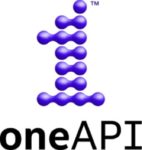The European Programming Environment for Programming Productivity of Heterogeneous Supercomputers (EPEEC) is a project that aims to combine European made tools for programming models and performance tools that could help to relieve the burden of targeting highly-heterogeneous supercomputers. It is hoped that this project will make researchers jobs easier as they can more effectively use large scale HPC systems.
Job of the Week: Senior Level Unix/Linux Systems Engineer at Lockheed Martin Space Systems
Lockheed Martin Space is seeking a Senior Level Unix/Linux Systems Engineer in our Job of the Week. “The coolest jobs on this planet… or any other… are with Lockheed Martin Space. We are seeking a Multi-Level Security Subject Matter Expert for Unix/Linux/SE Linux/HPC System Engineers-Developers-Administrators and Research and Development HPC program team.”
Video: Energy Efficient Computing using Dynamic Tuning
Lubomir Riha from IT4Innovations gave this talk as part of the POP HPC webinar series. “This webinar focused on tools designed to improve the energy-efficiency of HPC applications using a methodology of dynamic tuning of HPC applications, developed under the H2020 READEX project. The READEX methodology has been designed for exploiting the dynamic behaviour of software. At design time, different runtime situations (RTS) are detected and optimized system configurations are determined. RTSs with the same configuration are grouped into scenarios, forming the tuning model. At runtime, the tuning model is used to switch system configurations dynamically.”
Video: Profiling Python Workloads with Intel VTune Amplifier
Paulius Velesko from Intel gave this talk at the ALCF Many-Core Developer Sessions. “This talk covers efficient profiling techniques that can help to dramatically improve the performance of code by identifying CPU and memory bottlenecks. Efficient profiling techniques can help dramatically improve the performance of code by identifying CPU and memory bottlenecks. We will demonstrate how to profile a Python application using Intel VTune Amplifier, a full-featured profiling tool.”
Breaking Boundaries with Data Parallel C++
“There’s a new programming language in town. Called Data Parallel C++ (DPC++), it allows developers to reuse code across diverse hardware targets—CPUs and accelerators—and perform custom tuning for a specific accelerator. DPC++ is part of oneAPI—an Intel-led initiative to create a unified programming model for cross-architecture development. Based on familiar C++ and SYCL, DPC++ is an open alternative to single-architecture proprietary approaches and helps developers create solutions that better meet specialized workload requirements.”
New Intel oneAPI DevCloud makes it easier for coders working from home
Today Intel introduced the oneAPI DevCloud to make it easier and more productive for coders currently working from home. “Developing code at home requires access to compute cycles, the latest software development tools, access across diverse hardware architectures—CPUs, GPUs, and FPGAs, and expanded storage capabilities. Through the new oneAPI DevCloud, Intel aims to provide extended access, capacity and support for oneAPI developers working from home.”
Podcast: One Big Debate over OneAPI
In this podcast, the Radio Free HPC team looks at Intel’s oneAPI project. “The OneAPI project is a highly ambitious initiative; trying to design a single API to handle CPUs, GPUs, FPGAs, and other types of processors. In the discussion, we look under the hood and see how this might work. One thing working in Intel’s favor is that they’re using data parallel C++, which is highly compatible with CUDA – and which is probably Intel’s target with this new initiative.”
Latest Release of Intel Parallel Studio XE Delivers New Features to Boost HPC and AI Performance
Intel Parallel Studio XE is a complete software development suite that includes highly optimized compilers and math and data analytics libraries, along with comprehensive tools for performance analysis, application debugging, and parallel processing. It’s available as a download for Windows, Linux, and MacOS. “With this release, the focus is on making it easier for HPC and AI developers to deliver fast and reliable parallel code for the most demanding applications.”
Podcast: How Community Collaboration Drives Compiler Technology at the LLVM Project
In this Let’s Talk Exascale podcast, Hal Finkel of Argonne National Laboratory describes how community collaboration is driving compiler infrastructure at the LLVM project. “LLVM is important to a wide swath of technology professionals. Contributions shaping its development have come from individuals, academia, DOE and other government entities, and industry, including some of the most prominent tech companies in the world, both inside and outside of the traditional high-performance computing space.”
Video: How oneAPI Is Revolutionizing Programming
In this video, academics and industry experts weigh in on the potential of oneAPI, the new, unified software programming model for CPU, GPU, AI, and FPGA accelerators that delivers high compute performance for emerging specialized workloads across diverse compute architectures.












